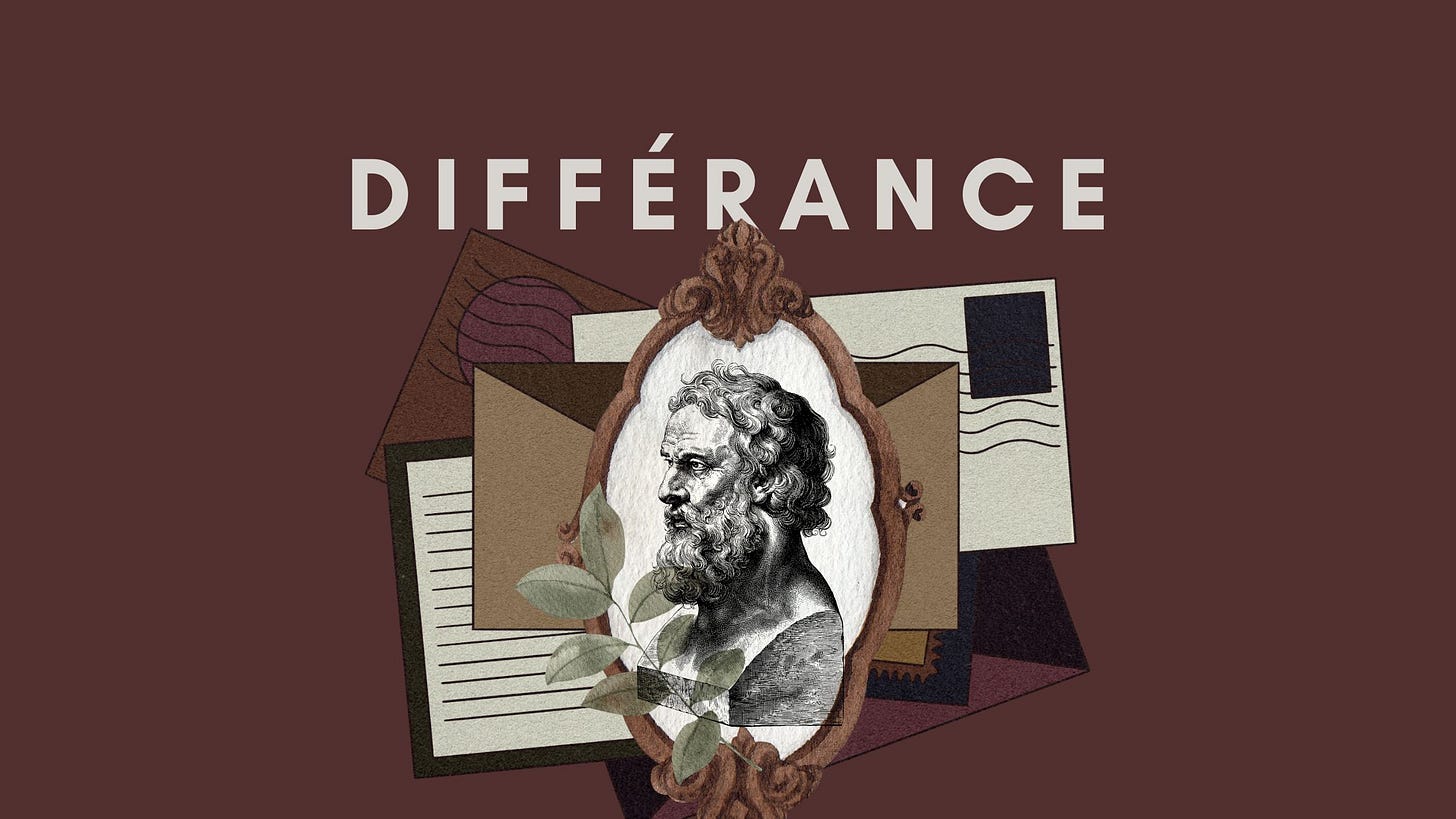Différance: How To Think Critically In The Age of Content - An Extended Essay
From Plato to Derrida
Originally published in The Collector on the 11th of July, 2022, and delivered as a lecture at The University of Melbourne on the 3rd of September, 2022.
In one of Plato’s dialogues: Phaedrus, the Greek philosopher Socrates told the myth of King Thamus. The story goes: once, the Egyptian god Theuth visited King Thamus and offered him the gift of writing. With great enthusiasm, the god claimed that this tool of writing “will make the Egyptians wiser and will improve their memory” and act as “a potion for memory and for wisdom.” The great King Thamus scratched his beard for a while and shook his head. When Theuth asked him why he’d refuse such a remarkable gift, the King explained that writing is actually not making people wiser. “In fact,” the King went on, “it will introduce forgetfulness into the soul of those who learn it: they will not practice using their memory because they will put their trust in writing (Plato 227a — 279c)”.
This dislike, or rather, the paranoia for writing, didn’t just bother King Thamus. It essentially haunted Western philosophy for thousands of years. Aristotle later called writing defective and treated it as mere “symbols of spoken words (Aristotle I.I6a:3)”. French Enlightenment philosopher Jean-Jacques Rousseau went as far as to call it “a dangerous supplement” in his Confessions.
Keep reading with a 7-day free trial
Subscribe to A Mug of Insights to keep reading this post and get 7 days of free access to the full post archives.



